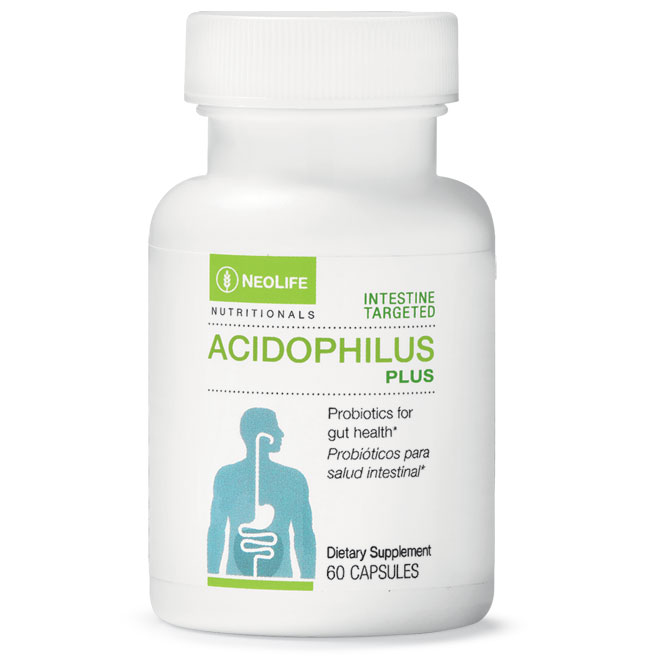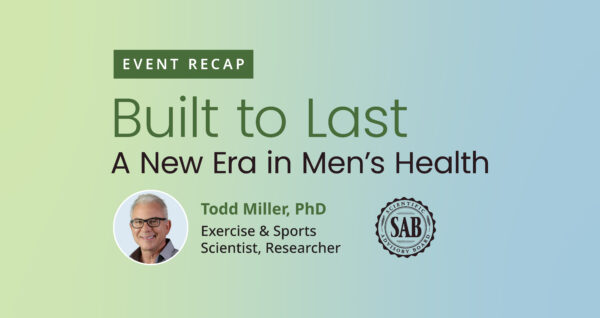There’s been a lot of talk about the gut microbiome in recent years. If you aren’t yet aware of its critical function and importance, here’s what you need to know.
Our diets feed more than just our body’s cells. We’re also feeding a variety of microorganisms that reside inside our digestive tracts, collectively known as the gut microbiome. Research shows strong associations between specific nutrients from our diets and the appearance of certain microbes in our gut.2 This is key to understanding how our diet impacts our health.
The microbial species we cultivate through what we eat produce many bioactive compounds; some can be linked with unhealthy markers like obesity and high triglyceride levels and can be toxic, while others can be linked with healthy behaviors like eating a variety of plants and yield beneficial vitamins.2,3 Our gut microbiome has the ability to impact many aspects of our health. With the right diet and supplements, we can change its composition to help support health and weight loss goals.
A diet low in whole foods but high in processed foods will support more harmful microbe species and less diversity.2-4 Eating a diet with a large variety of whole foods supports a diverse microbiome with species that produce beneficial compounds like B vitamins, vitamin K, and neurotransmitters like serotonin.2 One study showed the powerful impact on the microbiome of consuming vegetables that contain a compound called allicin found in garlic, onions, and leeks. Subjects drank raw garlic juice for a week and experienced improved microbiota diversity, an increase in the number of beneficial bacteria, and a reduction in microbe production of trimethylamine N-oxide (a marker positively correlated to cardiovascular disease).5 Another study found garlic supplements increased microbial richness and diversity, in addition to yielding other cardiovascular benefits like reduced arterial stiffness and improved cholesterol levels.6 That’s just a sample of the evidence that diet has the power to shift our microbiome composition over time, and supplements can help move that process along.
Because the microbiome plays a role in appetite, an unhealthy composition of gut microbes can contribute to difficulties with maintaining a healthy weight.4 However, certain supplements, like probiotics, can be powerful allies. They have been shown to alter gut microbiome composition and secretions to influence our appetite and cravings.1 Certain strains, like the Lactobacillus family, have been particularly well studied for their influence in supporting weight loss.7
Acidophilus Plus
Intestine-targeted probiotic with 5 billion live micro-organisms for gut health and digestive balance. Exclusive Gel-Gard technology for guaranteed delivery.*
Learn more here.
References:
- Sawka MN, et al. Human water needs. Nutr Rev. 2005 Jun; 63(1): S30-9. doi: 10.1111/j.1753-4887.2005.tb00152.x.
- Asnicar F, et al. Microbiome connections with host metabolism and habitual diet from 1,098 deeply phenotyped individuals. Nat Med. 2021; 27(2): 321-32. doi: 10.1038/s41591-020-01183-8.
- Conlon MA, Bird, AR. The impact of diet and lifestyle on gut microbiota and human health. Nutrients. 2015 Jan; 7(1): 17-44. doi:10.3390/nu7010017.
- Aoun A, et al. The influence of the gut microbiome on obesity in adults and the role of probiotics, prebiotics, and synbiotics for weight loss. Prev Nutr Food Sci. 2020 Jun; 25(1): 113-23. doi: 10.3746/pnf.2020.25.2.113.
- Panyod S, et al. Atherosclerosis amelioration by allicin in raw garlic through gut microbiota and trimethylamine-N-oxide modulation. NPJ Biofilms Microbiomes. 2022 Jan; 8(1): 4. doi: 10.1038/s41522-022-00266-3.
- Ried K. Garlic lowers blood pressure in hypertensive subjects, improves arterial stiffness and gut microbiota: A review and meta-analysis. Exp Ther Med. 2020 Feb; 19(2): 1472-8. doi: 10.3892/etm.2019.8374.
- Crovesy L, et al. Effect of Lactobacillus on body weight and body fat in overweight subjects: a systematic review of randomized controlled clinical trials. Int J Obes (Lond). 2017 Nov; 41(11): 1607-14. doi: 10.1038/ijo.2017.161.



















